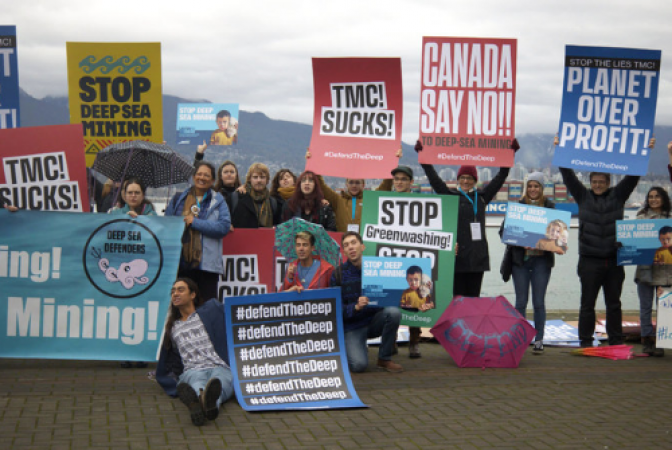
UNO: The possibility of extensive mining to extract valuable minerals from the Pacific Ocean's depths has grown closer to reality, alarming even the fiercest defenders of the oceans. Emma Wilson of the Deep Sea Conservation Coalition, a federation of environmental organisations and scientific institutions, told AFP, "I think this is a real and imminent risk."
Many different parties have expressed concern about the serious environmental risks. Even if the long-awaited treaty to protect the high seas is passed in negotiations that resume on Monday, it won't go into effect right away, and it will need to reach an agreement with the International Seabed Authority (ISA).
167 nations make up this organisation, which was created in accordance with the UN Convention on the Law of the Sea. Outside of the Exclusive Economic Zones of member states, it has jurisdiction over the ocean floor (which extend up to 200 nautical miles, or 370 kilometers, from coastlines).
Also Read: Long-range missile fired by North Korea after warning US and South Korea about drills
However, environmental organisations claim that the ISA has two blatantly incompatible goals: to protect the ocean floor beneath the high seas and to coordinate the activities of businesses eager to mine the ocean floor for untapped resources.
About 30 research centres and businesses have currently been given permission to explore but not exploit certain areas. Before negotiators adopt a mining code that has been under consideration for almost a decade, mining operations are not supposed to start.
But the tiny Pacific island nation of Nauru made headlines in June 2021 by using a provision that lets it demand relevant rules be adopted within two years after becoming impatient with the slow pace of change.
Once that deadline has passed, the government may ask The Metals Company of Canada, a subsidiary of Nori (Nauru Ocean Resources), for a mining contract. In the hopes that it will adopt a mining code, Nauru has made what it called a "good faith" commitment to hold off until after an ISA assembly in July.
Also Read: Chinese laser attack, according to Marcos, is insufficient to trigger the US defence pact
According to Margo Deiye, Nauru's ambassador to the ISA, "the only thing we need is rules and regulations in place so that people are all responsible actors."
However, according to Pradeep Singh, a sea law expert at the Research Institute for Sustainability in Potsdam, Germany, it is "very unlikely" that a code will be agreed upon by July.
He told AFP that there are simply "too many items on the list that still need to be resolved." Those issues, according to him, include the divisive topic of how undersea mining profits would be distributed and how environmental effects ought to be assessed.
NGOs worry that without the protections offered by a mining code, Nori might be able to secure a mining contract. Conservation organisations complain that ISA leadership is "pro-extraction" and that its procedures are "obscure." Michael Lodge, the agency's secretary-general, maintains that these accusations "have absolutely no substance at all." He pointed out that the ISA Council, not its secretariat, decides which contracts get awarded.
Also Read: Indonesian students discover a Middle Eastern entryway in Arabic literature
He added that the ISA is the reason there is currently no undersea mining "anywhere in the world" because it is "the only industry...that has been fully regulated before it starts."